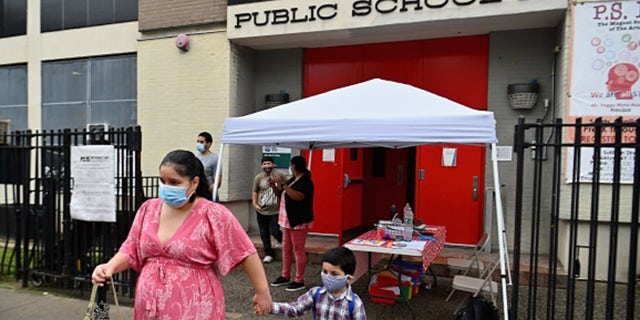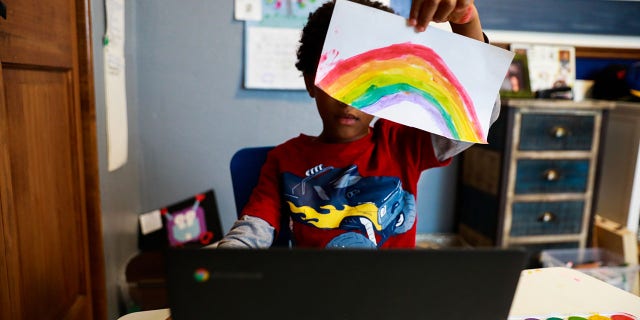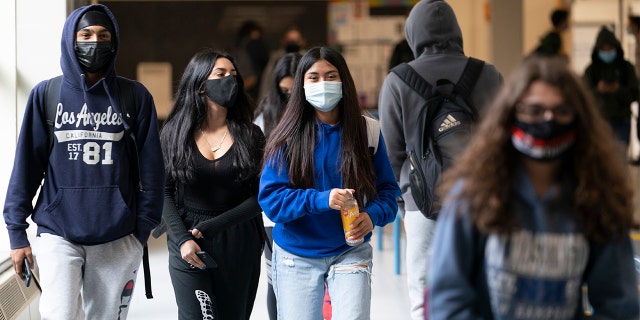
COVID’s devastating toll on kids’ mental health not over yet
Children’s Hospital Colorado declares a mental health state of emergency; Fox News correspondent Aishah Hasnie reports on the startling statistics.
If you or someone you know is having thoughts of suicide, please contact the National Suicide Prevention Lifeline at 1-800-273-TALK (8255).
U.S. Surgeon General Dr. Vivek Murthy on Tuesday issued a new Surgeon General’s Advisory, warning of a growing youth mental health crisis amid the coronavirus pandemic.
While the crisis began escalating in the decade leading up to the pandemic, COVID-19 worsened conditions as it limited social interactions and access to necessary health and social services among young people, according to the surgeon general’s office.
“Mental health challenges in children, adolescents and young adults are real and widespread. Even before the pandemic, an alarming number of young people struggled with feelings of helplessness, depression and thoughts of suicide – and rates have increased over the past decade,” Murthy said in a Tuesday statement. “The COVID-19 pandemic further altered their experiences at home, school and in the community, and the effect on their mental health has been devastating.”

A mother arrives with her son to an outdoor learning demonstration for New York City schools in front of the Patrick F. Daly Public School (P.S. 15) on Sept. 2, 2020. (Angela Weiss/AFP via Getty Images)
Early data show emergency room visits for suicide attempts among adolescent girls, in particular, rose by 51% during COVID-19 and emergency room (ER) visits among adolescent boys increased by 4% during the same time period.
While some young people got more sleep, exercise and positive family time at home during the pandemic, others suffered.
“They missed first days of school, months or even years of in-person schooling, graduation ceremonies, sports competitions, playdates, and time with relatives,” the advisory states. “They and their family may have lost access to mental health care, social services, income, food or housing. They may have had COVID-19 themselves, suffered from long COVID symptoms, or lost a loved one to the disease – it’s estimated that as of June 2021, more than 140,000 children in the U.S. had lost a parent or grandparent caregiver to COVID-19.”

Malchester Brown IV, 6, takes a photo of the rainbow he painted to submit to his teacher online at his home in Oakland, California, on March 15, 2021.
(Gabrielle Lurie/The San Francisco Chronicle via Getty Images)
Additionally, as COVID-19 limited in-person interactions and youth services, signs of abuse and mental health concerns became harder for adults to recognize.
The advisory also cites a “national reckoning over the deaths of Black Americans at the hands of police officers, including the murder of George Floyd”; “violence against Asian Americans”; “gun violence”; and an “increasingly polarized political dialogue” as reasons behind declining youth mental health in 2020 and 2021.
Early estimates for 2020 show more than 6,600 suicide deaths among U.S. youth ages 10 to 24, according to the Centers for Disease Control and Prevention.

White Plains High School students walk between classes on April 22 in White Plains, New York.
(AP Photo/Mark Lennihan)
Even prior to COVID-19, one in every five U.S. children between the ages of 3 and 17 experienced mental, emotional, developmental or behavioral disorders, a CDC report shows.
In the decade between 2009 and 2019, specifically, the number of students who reported feeling constantly sad or hopeless increased by 40% to more than one in three students, according to Murthy’s office.
Suicide among high school students increased 36% between 2009 and 2019, with 19% of teenagers considering suicide and 16% having a plan to carry out a suicide attempt in 2018. Suicide rates among U.S. youth between the ages of 10 and 24 rose by 57% between 2007 and 2018.
The surgeon general’s office recommends adults recognize mental well-being as an important factor in a child’s overall well-being; empower youth to build strong relationships with adults and be attentive to social media and technology use; limit children’s access to means of self-harm; ensure children have access to quality health care; provide safe learning environments for children; address “economic and social barriers” among U.S. youth; and come up with better ways to track data on youth mental health trends.
The National Suicide Prevention Lifeline can be reached by calling 800-273-8255.
For those who don’t want to speak to a counselor, there’s also a national Crisis Text Line available 24/7 by texting “home” to 741741.
Source: Read Full Article
